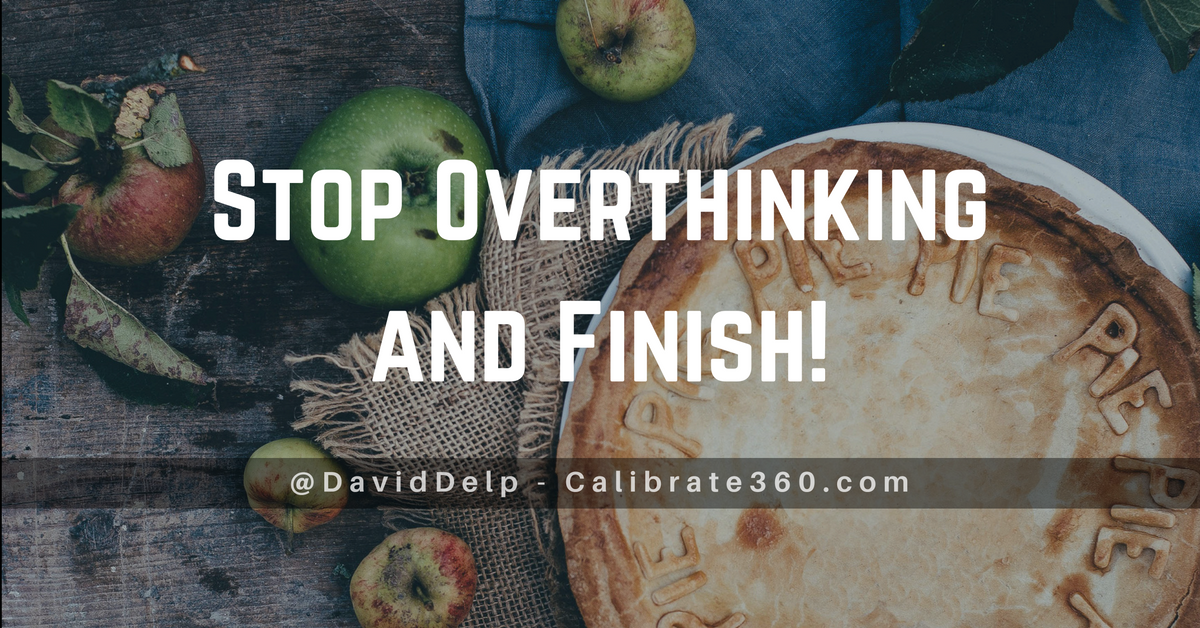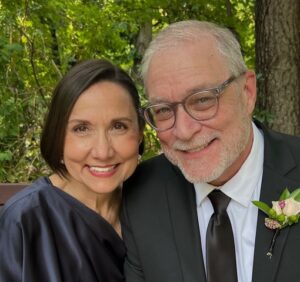You had a revelation. You wrote it down. You were excited. Then perfectionism and the fear of criticism caused you to edit it down until it lost its unique value.
Instead of the valuable gem you started with, you were left with an idea stripped of its power, or worse, you gave up and never executed.
I am not a baker, but Donna is. She makes apple pies better than anyone else. She tells me that you can only roll pie crust out once. If you keep mixing the scraps together and keep rolling the dough out again and again it will get tough. Her rule, roll the dough out once and only once.
Sometimes I write a great thought, an inspired thought, and then my perfectionism and desire to avoid criticism causes me to knead out the most salient points. Instead of a meaningful, appropriately transparent, and flaky and tasty crust, I produce a tough and chewy read or talk that has half the value of the first raw draft.
I did a web search and read a few reputable cooking blogs. Sure enough, especially for pastry goods, you mustn’t over-knead the dough because it will make it tough.
I am on a quest to simplify, to be a bit more raw in my writing and my leadership. This baking discussion caused a light to go on in my head. I “knead” my words and thoughts too much. Everything I write has to be edited before public consumption for the sake of flow, understanding, and quality. Editing is a necessary part of writing. In fact, experienced writers free-write the first draft and edit later. Creating and editing are two different functions and they need to stay separate or you will fight the mythical “writer’s block” and never start. I think this applies to most creative processes, including the inspiration necessary to communicate a message from God.
Don’t Mince Words
When we mince words we sacrifice clarity. The definition of “mince,” as it relates to our words, is to “soften, moderate, or weaken (ones words) especially for the sake of decorum or courtesy.” “To NOT mince words is to speak directly or frankly; be blunt or outspoken.”
When I first realized I had a problem with this was some years ago when I terminated an employee and it was 20 minutes into our conversation before it dawned on them that I was firing them. I’ve since learned that when I have painfully difficult conversations, I must be tactful and wise, I must be sensitive, and I must clearly state the problem within the first three or four sentences.
[callout]When Having Difficult Conversations…
1) Be tactful and wise
2) Be sensitive
3) Clearly state the problem right away.[/callout]
My Granny used to call it “beating around the bush.” Communicate clearly. When you mince words people have no idea what you are trying to say. That doesn’t solve anything and it does not communicate.
[shareable]Communicate clearly. When you mince words people have no idea what you are trying to say. [/shareable]
Don’t Over-Knead Your Words
I sometimes have a great thought, I write it down, and then my perfectionism and fear of criticism causes me to knead out the most salient points. Instead of a meaningful, appropriately transparent, and flaky and tasty crust, I produce a tough and chewy read or talk that has half the value of the first raw draft.
I cannot tell you how many times in sermon preparation I’ve almost audibly heard the Holy Spirit say to me, “STOP, stop preparing, you are ready, you are going to ruin it if you keep messing with it.”
It is possible, and even more likely if doing it by hand, to under-knead dough when making bread (according to my newfound blogger friends in the cooking space). Laziness causes unpreparedness. Caution. But my problem: Over-kneading.
Don’t Edit Through the Eyes of Your Critics
This applies to more than writing. It applies to your style, your transparency, your words, your actions. Stop editing through the eyes of your critics. Oh yeah, I know how important constructive criticism, is… please, I get that. But some people have to take a dig at everything. Usually these folks set around in their underwear on the couch and critique your work while they watch home improvement shows… read: they aren’t in the arena, they aren’t doing it, all they have is an opinion. Constructive criticisms are from (1) people with whom I have some level of relationship, and (2) people whose aim is to make me better, not to impress someone of their superiority because they can make an obscure comment on my work without the full context. (Note: Dialogue and criticism are different things.)
When you edit through the eyes of your critics you knead and re-knead the dough. You roll it out, lump it up again because it wasn’t perfect, and roll it out again and again. The heart-value got massaged out. It was just better when it was you and not somebody else.
Don’t be Concerned that Everyone Doesn’t Like Your “Crust”
We all want Granny’s pie. I’ve had some oily greasy pies that tasted awful, but the person who made it was so proud because it was just like Granny’s. News flash… your Granny’s pie is terrible! It’s all in what we are used to. We all have unique perspectives. I need to reach out to those God sends to me. Certain people want to hear what I have to say, or they are prepared to hear, others either don’t want to hear it or have not been prepared to hear it. Some people appreciate your perspective and some do not. Choose to embrace the fact that your words or leadership are for some people and not for others. If my words aren’t for you… move on to the next guy. If my words speak something to you… stick around. There will be more, a lot more.
Here’s my plan…
Moving forward, I’m going to knead less. I’ll stay on the raw/transparent side. I’m going to publish words rolled out once.
I’m going to measure my words, to be appropriate, never seeking to be offensive, but realizing some will take offense where none was intended.
I am going to frustrate the perfection bone in my body by publishing, shipping, printing, and communicating imperfect things. I am going to lean on the saying, “finished is better than perfect.”
[shareable]Finished is better than perfect.[/shareable]
As much as it depends upon me, I will live in peace with all men and women… as far as it does not depend upon me… not much we can do about that now, is there?
Questions for Thought:
- Do you have a problem with over-rolling or over-kneading your words? Why? How does it hold you back?
- What about other creative or leadership pursuits? Do you “pull your punches” when you lead because you are unsure of yourself or afraid of being misunderstood? How can you communicate more clearly in those circumstances?
- Do you have the opposite problem? Do you “shoot from the hip,” over react to situations, and say things you should not have said? How might you temper, or edit yourself so you clearly communicate your heart?
- What needs to change so you “roll the dough” right the first time? What steps will you take to get there? Who will hold you accountable?
- What about the leaders you are coaching and mentoring? Can you use these questions with them to open dialogue on either the fear to create/lead or being too harsh in leadership?


